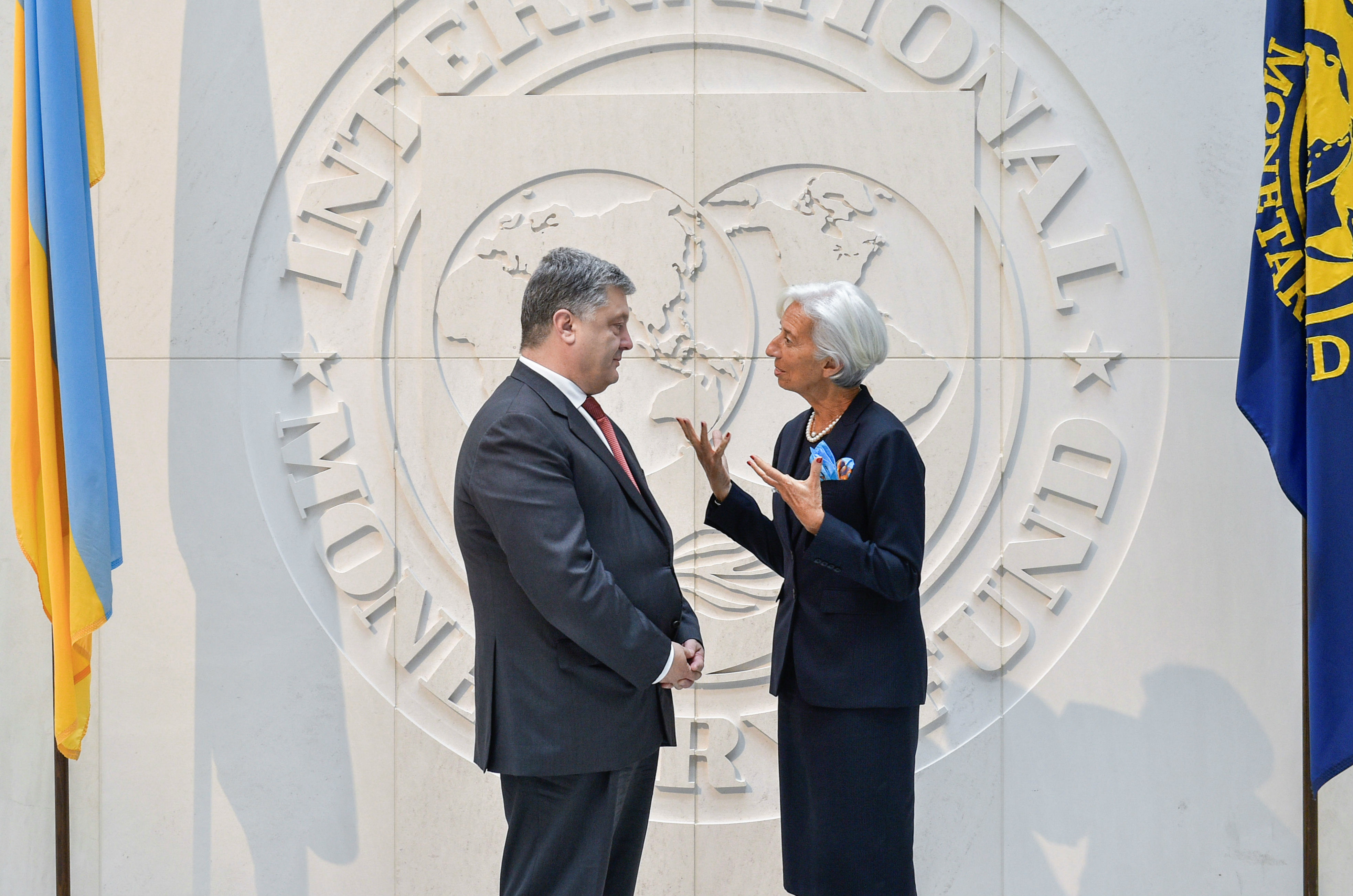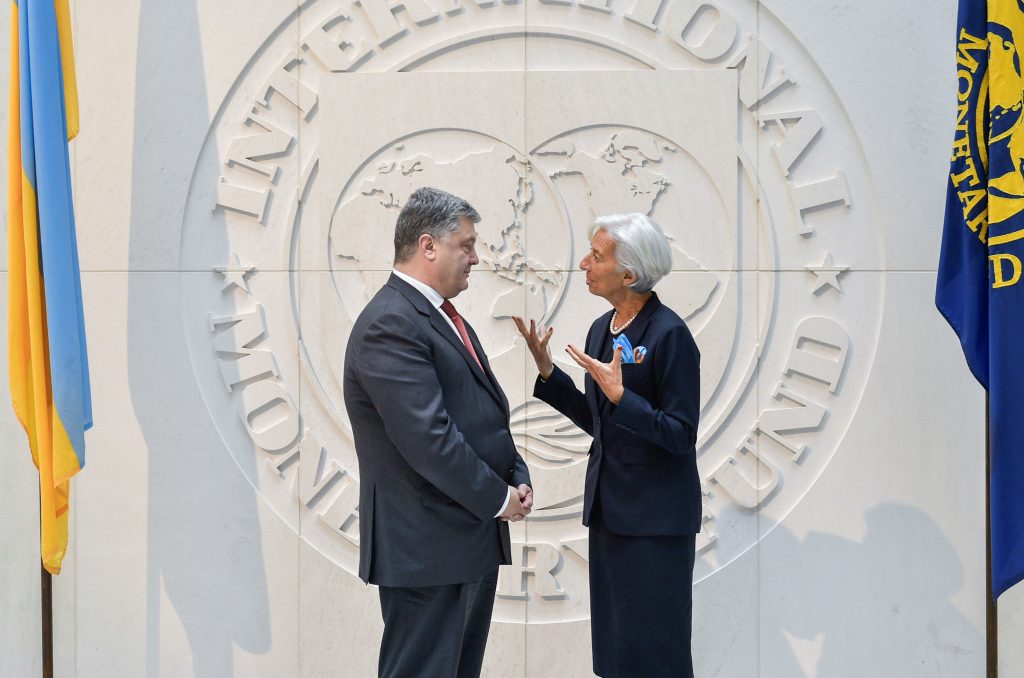 Last week Ukraine’s finances didn’t look so promising and a fall fiscal crisis was entirely possible. Many worried that Ukraine wouldn’t satisfy the International Monetary Fund’s three main demands in time to receive a $1.9 billion tranche before annual budget debates begin. The IMF had been demanding an Anticorruption Court, market prices on gas for households, and a budget deficit target of 2.5 percent. Ukraine passed an Anticorruption Court bill that satisfies the IMF, but it has not met the second and third conditions.
Last week Ukraine’s finances didn’t look so promising and a fall fiscal crisis was entirely possible. Many worried that Ukraine wouldn’t satisfy the International Monetary Fund’s three main demands in time to receive a $1.9 billion tranche before annual budget debates begin. The IMF had been demanding an Anticorruption Court, market prices on gas for households, and a budget deficit target of 2.5 percent. Ukraine passed an Anticorruption Court bill that satisfies the IMF, but it has not met the second and third conditions.
However, things changed this week. The International Monetary Fund announced that it will return to Kyiv, Ukraine, from September 6-19 to discuss the economy and the current IMF program.
This IMF visit shows that the Ukrainian side woke up and smelled the roses. The IMF never would have agreed to visit Kyiv again without pretty clear assurances from the Ukrainian side that they are willing to move on the sticky issues of gas price hikes and further fiscal consolidation.
I see three likely reasons for pushing the Ukrainian side into this proactive move:
First, Ukraine’s cash balance at the Ministry of Finance was down to its lowest level since late-2013.
Second, seasonal pressure on the Ukrainian hryvnia. Before the heating season begins, gas is bought and placed into storage, and this trend should start soon. Ukraine is also entering an election campaign where Ukrainians typically buy foreign currency.
Third, and perhaps most important, the ongoing problems in Turkey and concern about its impact on global markets. Replenishing Ukraine’s cash balance through borrowing would have been difficult without the IMF program back on track. Ukraine faces a heavy debt financing schedule (about $1 billion) that is due by the end of September and it was hard to see this being rolled out smoothly with flux in global markets and with the IMF program off track.
Now the IMF mission will arrive in September, and the hope is that the government and IMF will quickly agree over energy price hikes and fiscal consolidation before everything gets mixed up in the 2019 budget debate. Ideally the IMF will disburse $1.9 billion by late September/early October, perhaps doubling then with other official financing. This should bolster the state coffers before the March presidential election. It’s hard to see another IMF review being concluded before that election.
Timothy Ash is a London-based senior emerging markets sovereign strategist for Bluebay Asset Management Company.
Image: Managing Director of the International Monetary Fund (IMF) Christine Lagarde talks to Ukrainian President Petro Poroshenko during their meeting at the IMF headquarters in Washington, US, June 20, 2017. Mykola Lazarenko/Ukrainian Presidential Press Service/Handout via REUTERS
